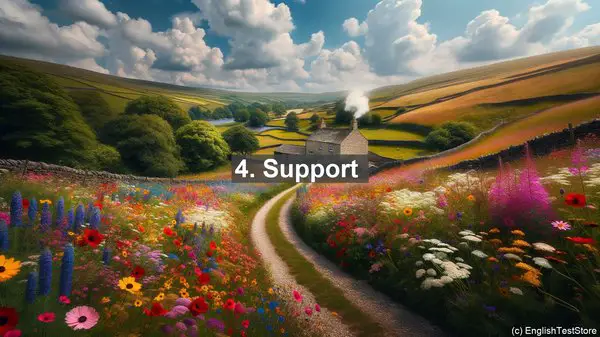Introduction
Welcome to today’s lesson. Today, we’re going to dive into the world of ethical fashion and clothing sustainability. To effectively discuss this topic, it’s important to have a strong vocabulary. And that’s why we’re here. We’ll be exploring the top 10 English verbs that are frequently used in conversations about ethical fashion and clothing sustainability. So, let’s get started!
1. Advocate
The first verb on our list is ‘advocate.’ When you advocate for something, you actively support and promote it. In the context of ethical fashion, advocating means endorsing brands and practices that prioritize fair wages, safe working conditions, and environmentally-friendly production methods.
2. Embrace
To ’embrace’ in the context of ethical fashion means to accept and adopt it. When you embrace ethical fashion, you make a conscious decision to choose clothing items that are sustainably produced, rather than those that contribute to environmental degradation or exploit workers.
3. Challenge
Challenging the status quo is an essential aspect of promoting ethical fashion. By ‘challenging,’ we mean questioning and pushing for change in the industry’s practices. It involves raising awareness about issues like fast fashion and encouraging consumers to make more informed choices.

4. Support
Supporting ethical fashion goes beyond just purchasing from sustainable brands. It also involves actively endorsing and encouraging others to do the same. By supporting ethical fashion, you contribute to the growth of a more sustainable and responsible industry.
5. Educate
Education plays a crucial role in the ethical fashion movement. When you ‘educate,’ you inform and raise awareness about the impact of the fashion industry on the environment and society. This can be done through various means, such as workshops, social media, or even casual conversations.
6. Collaborate
Collaboration is key to driving change in any industry, and ethical fashion is no exception. By ‘collaborating,’ you work together with different stakeholders, including brands, NGOs, and consumers, to find innovative and sustainable solutions for the challenges the industry faces.

7. Promote
Promoting ethical fashion involves actively showcasing and endorsing sustainable brands and practices. This can be done through various channels, such as social media, events, or even personal recommendations. By promoting ethical fashion, you create a ripple effect, inspiring others to follow suit.
8. Engage
Engaging with the ethical fashion community is a great way to stay updated and contribute to the ongoing conversations. By ‘engaging,’ we mean actively participating in discussions, attending events, and supporting initiatives that aim to make the industry more sustainable.
9. Demand
As a consumer, your demand has the power to shape the industry. By ‘demanding,’ you’re expressing your preference for ethical and sustainable products. This, in turn, puts pressure on brands to adopt more responsible practices and ensures a shift towards a more sustainable future.
10. Innovate
Innovation is vital for the growth and transformation of the fashion industry. By ‘innovating,’ you’re encouraging the development of new technologies, materials, and business models that are more sustainable. Whether it’s through circular fashion or zero-waste production, innovation is key to a greener future.
